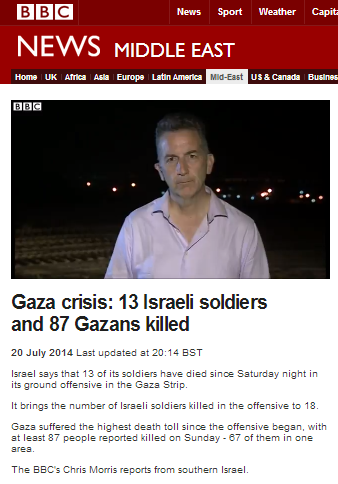Even as the US Secretary of State was still speaking on the topic of the two-state solution on December 28th, the BBC Radio 4 programme ‘PM’ was already offering coverage of that long speech by John Kerry.
Included in that coverage was analysis (from 05:07 here) from Ian Bremmer of ‘Eurasia Group’ – parts of which might come as something of a surprise to anyone who has been following the news from Israel in recent years – including the thousands of missile attacks from the Gaza Strip and the terror attacks against Israelis which have taken over forty lives and wounded hundreds in the past 15 months.
“Well, in the long-term Kerry’s certainly correct that an imposed one-state solution is no way to build peace between the Israelis and the Palestinians. But certainly in the short and medium term – and this has been going on for more than just the Obama administrations – the amount of stability that the Israelis presently enjoy with a one-state solution – even if it’s not final – is perfectly fine for them. I mean, even the Israeli Left no longer talks much about a two-state solution because there’s just not much of a Palestinian threat against Israelis these days. They don’t need Palestinian labour. With American defence support Hizballah can’t launch missiles into Israel to threaten Israeli civilians and the extraordinary surveillance – both human surveillance as well as cyber surveillance – the Israelis can do on would-be terrorists in and outside their country has helped to ensure that Israeli security is tantamount [sic]. So I mean the reality is this just isn’t a top priority for many people…”
Indeed, Israel has over the last decade developed missile defence systems that have significantly reduced casualties and damage during conflicts such as that of summer 2014. Nevertheless, those systems are not 100% effective and – contrary to Bremmer’s assertion – do not completely eliminate the threat to Israeli civilians.
“The weaponry Hezbollah has acquired in recent years also indicates that it is still adhering to the “rocket component” of its guerrilla doctrine. Its arsenal has grown in the decade since the Second Lebanon War to include 150,000 rockets. The majority are Katyushas, which are inaccurate and relatively ineffective. However, the emphasis on Katyushas is Hezbollah’s answer to the sophisticated multi-layer missile defense system Israel began developing in 2007, and which is now almost fully operational.
Lacking missiles advanced enough to bypass that system, Hezbollah likely intends to overwhelm it by sheer force of numbers. With Hezbollah expected to fire a daily average of 1,500 rockets in the next war, the cost of relying exclusively on missile interceptors would be prohibitive for Israel. Moreover, given the number of Hezbollah’s rockets, Israel’s defensive systems will not be able to intercept them all. Hundreds will likely strike the north, causing a similar disruption to civilian life and the economy as in the 2006 war.”
The BBC itself reported earlier this year that:
“Ten years ago, it was in the north of the country that Israel was hit but a new war is expected to be more devastating – on both sides.
There is also concern that despite Israel’s air defence systems such as Iron Dome, the military won’t be capable of intercepting all of the missiles that come Israel’s way.
“More missiles and rockets will hit the centre of Israel, the big cities of Israel,” says Gen Amidror.”
Apparently in this case, the BBC’s need to fill air-time during a breaking story got the better of its obligation to provide its domestic audiences with information which will “[e]nhance UK audiences’ awareness and understanding of international issues”.




